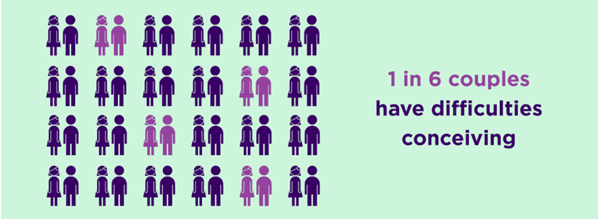Although at times certain symptoms, such as unpredictable, unusually painful or missing menstrual periods for women or hormonal issues, like changes in hair growth or sexual capacity for men, may signal an infertility issue, often times there are no symptoms. Because of this it is recommended to seek a fertility specialist’s advice if you have consistently been trying to conceive for a considerable period of time without success.
When to see a doctor
We have dedicated a whole chapter on “Factors Affecting Fertility” but in a nutshell, it is a good idea to seek the advice of a fertility expert if you’ve been trying to conceive for over a year and you’re under 35 years old or half a year if you’re above 35.
How we treat infertility conditions
At Thomson Fertility Centre, we adopt a holistic approach to fertility management. Understanding the factors and causes of infertility are key to helping couples to conceive. Our aim is to explore all other options available to couples before embarking on the path of assisted fertility treatments like SO-IUI, ICSI or IVF.
The first step would be an assessment with our fertility specialist, including a review of your medical history and potentially involving a general fertility test for couples or for a specific condition.
Depending on the conclusions of this initial assessment we may recommend you undergo reproductive surgery to address your infertility condition and help fulfil your baby hopes. Our surgeons treat a variety of reproductive problems that may lead to infertility such as endometriosis, uterine fibroids, pelvic adhesions, tubal occlusions, ovarian cysts, and congenital or acquired abnormalities.
At times, couples may find that they can conceive naturally after reproductive surgery to restore normal uterus, tubes or ovary function.
Types of Reproductive Surgery
Laparotomy
Open surgery, also known as laparotomy, is a traditional type of surgery that uses a surgical blade, retractors, and cautery to create a small, horizontal, “bikini” incision just like a caesarean section. Women with fibroids may undergo this procedure. Some doctors perform tubal reversal or reanastamosis techniques through a smaller open cut that gives 3D visibility. This variation of the procedure is known as a “mini-laparotomy” .Laparoscopy
Laparoscopic surgery is also known as a “keyhole medical procedure” and enables doctors to make smaller cuts and is known to be minimally invasive. This type of surgery utilizes long and slender instruments that are inflexible as compared to an open surgery. The instruments are guided by a camera that renders a 2D image in a monitor.Hysteroscopy
Hysteroscopy is a type of minimally invasive surgery that guides a camera into the uterus along with other smaller instruments to perform surgery on the uterine cavity for polyps, fibroids, or a septum.
Infertility Conditions Treated
The following are some of the common conditions our fertility clinic treats with the aid of reproductive surgery. Click on the ‘Read More’ button to learn about each condition.

